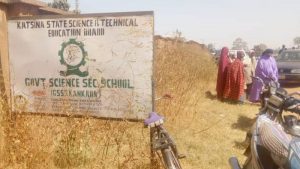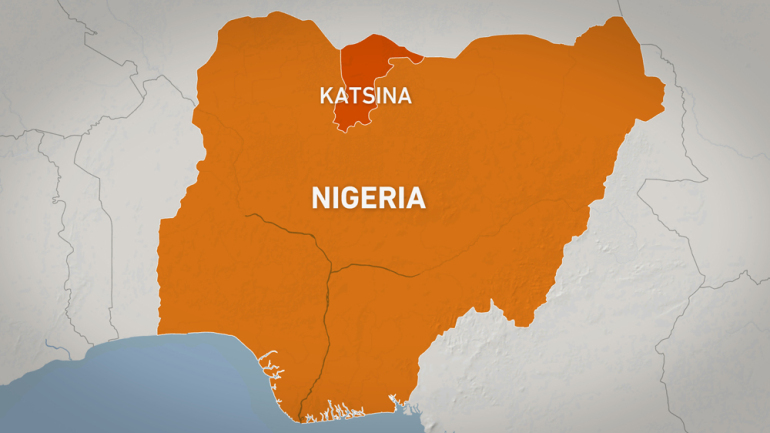Insecurity in Nigeria has taken a definite media dimension. This is not unusual. It is always part of the communication strategy of terrorists or purveyors of violence. They know that modern wars are about who gets to sell narratives of victory or defeat or of spectacle because war stories are stories of fear and the average human mind hardly has time to dialogue with such stories towards accepting or rejecting them.

GSSS, Kankara today, where next tomorrow?
But this would seem to be coming out clearest in the raid on Government Science Secondary School in Katsina State. The story came very early morning Saturday to the effect that 200 students had been kidnapped from a school in Katsina State. It was coming from a source whose credibility is beyond question. Still it carries its own risk. Publishing it carries the risk of spreading fear or reinforcing sense of danger which is already widespread. But, to fail to carry it is to be complicit in contributing to false sense of security, with implications for public safety. The game was to wait a bit.
It turns out to be a long wait before Channels Television came up with an update that all the 200 students said to be involved had returned unhurt. But, on Sunday morning, the report came that the Katsina State Government has shut down all boarding secondary schools. Additionally, the state governor, Alhaji Aminu Masari is frankly admitting that no one could say how many students have been taken away, adding though that security forces have assured him they are on top of the situation.
So, this time, it is not only that there was a raid but that some actors somewhere – most likely the perpetrators – appear to have a handle on sending tits and bits of the drama to the media. The obvious aim is to confuse everyone.
 Hence conflicts or spectacle of violence find the media the best platform to play out. The challenge is the imperative for defensive reporting. What is missing in the media side of the insecurity crisis in Nigeria is the impossibility of defensive reporting. The military cover that is a main requirement for that is not there. The narrative flair that interrupts and disorganizes terrorist information management strategy is lacking. It comes through uncommon training that is not part of the package in our shores. The political environment is anti-thetical to defensive reporting. The logic that frowns at reporting what is perceived to be capable of embarrassing the government remains the awkward logic it will ever be. If a government medium will not report what has happened, how does the government find the reason for invoking the emergency rules of engagement? It is simply unbelievable that such a warped logic has come to stay. The more fitting thing elsewhere is report what has happened but which gives the government the opportunity to speak.
Hence conflicts or spectacle of violence find the media the best platform to play out. The challenge is the imperative for defensive reporting. What is missing in the media side of the insecurity crisis in Nigeria is the impossibility of defensive reporting. The military cover that is a main requirement for that is not there. The narrative flair that interrupts and disorganizes terrorist information management strategy is lacking. It comes through uncommon training that is not part of the package in our shores. The political environment is anti-thetical to defensive reporting. The logic that frowns at reporting what is perceived to be capable of embarrassing the government remains the awkward logic it will ever be. If a government medium will not report what has happened, how does the government find the reason for invoking the emergency rules of engagement? It is simply unbelievable that such a warped logic has come to stay. The more fitting thing elsewhere is report what has happened but which gives the government the opportunity to speak.
It would have been thought that, after Chibok, then Dapchi, there could be no raid on any schools in the country without stories of hot pursuit or sharp exchange of fire in the course of the raid. The absence of such must be worrisome. Logically, those who worry about where next cannot be blamed.
Finally, could this have anything to do with presidential presence in Katsina? Are the terrorists sending him a welcome home signal aimed at embarrassing him or it is just a coincidence? What exactly is happening?




























